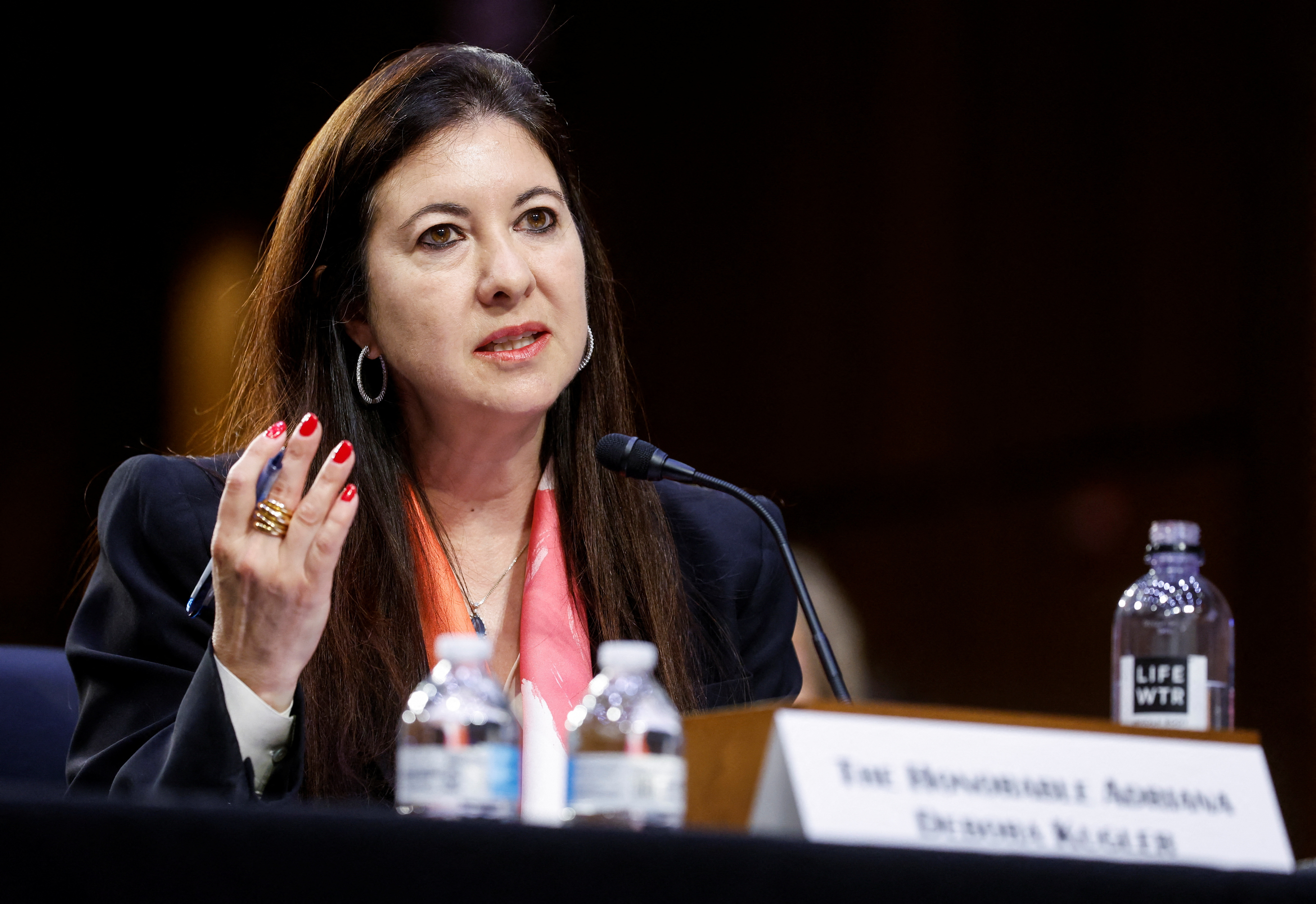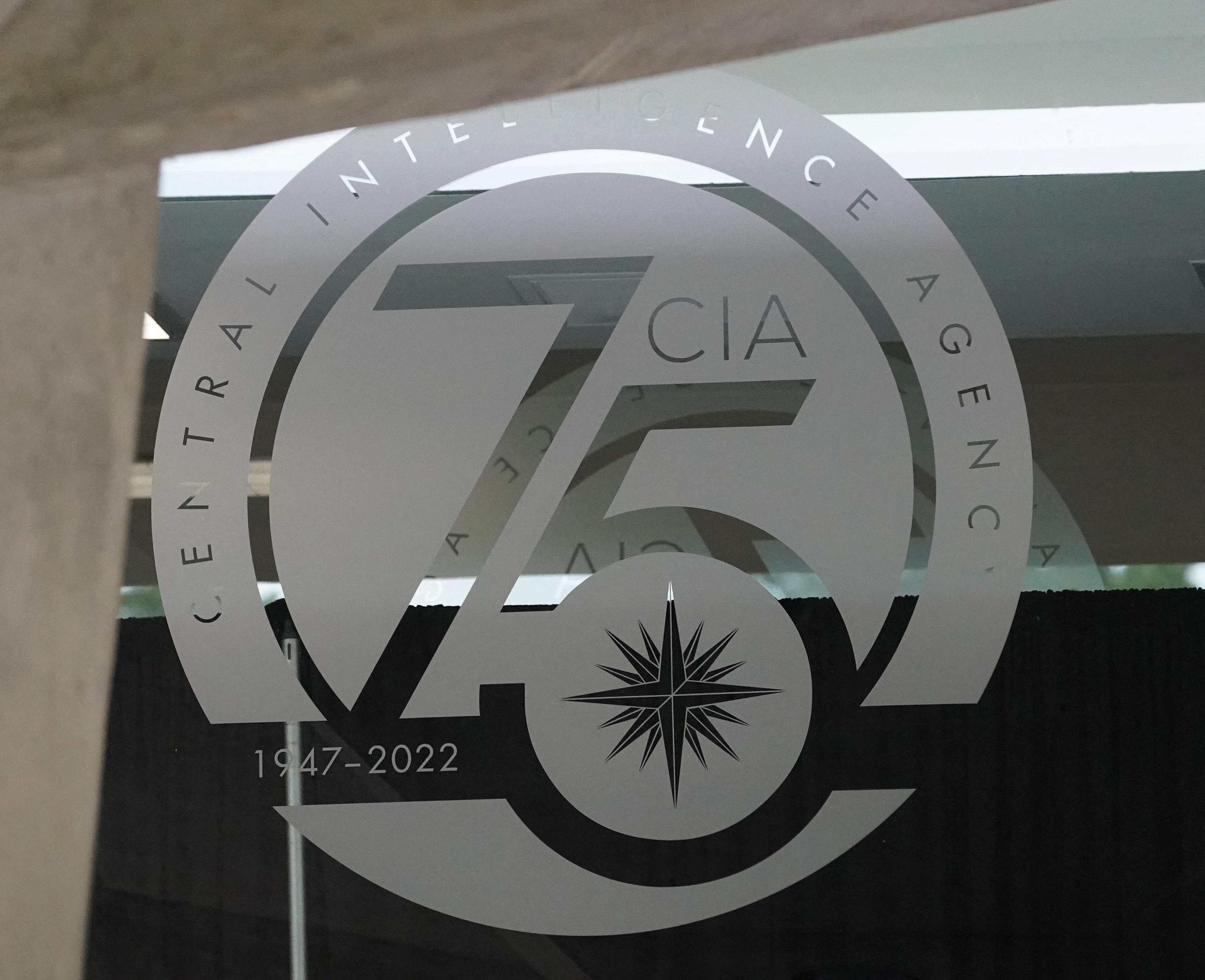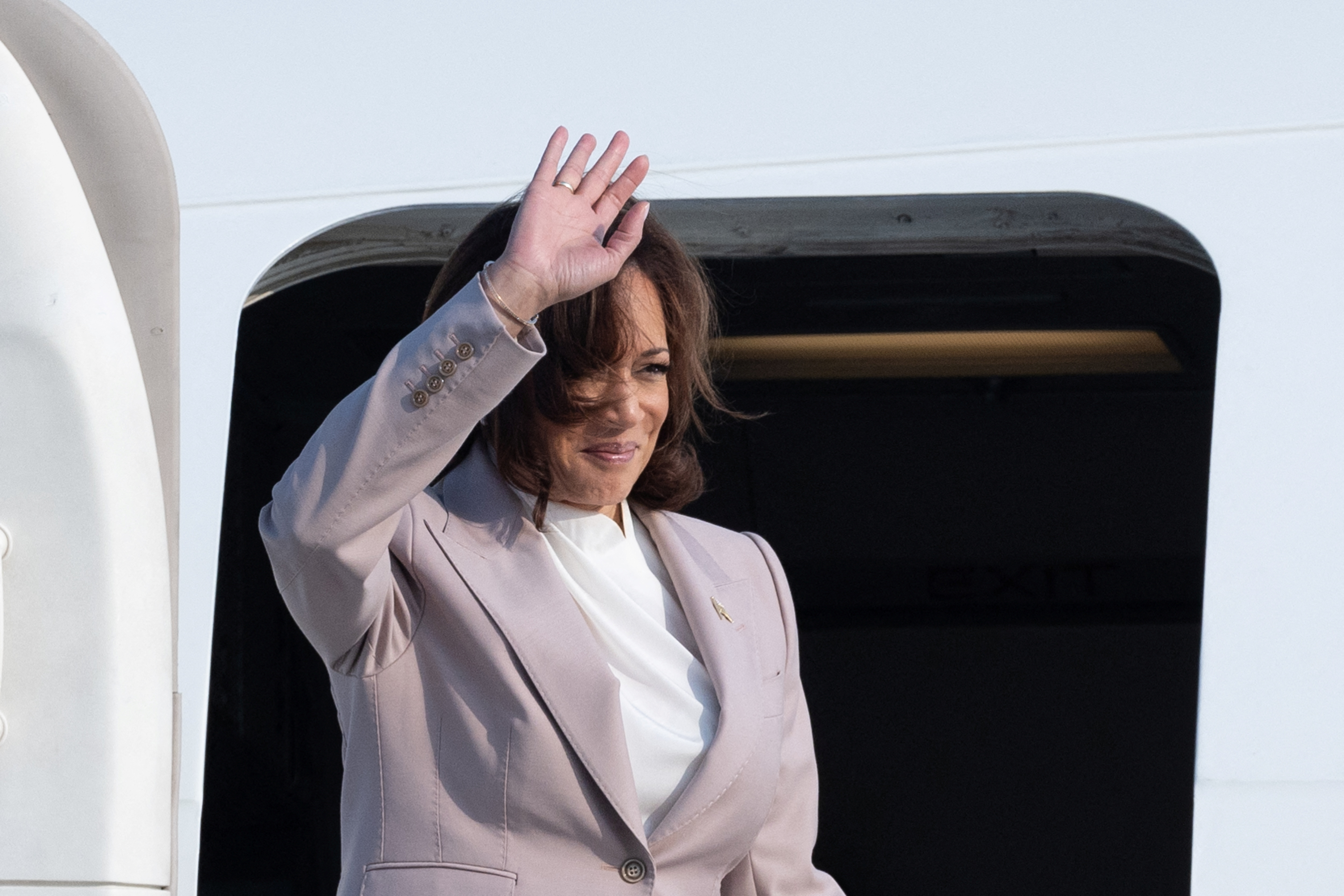Fed Board gets last governor as it nears economic crossroads

Adriana Kugler testifies before a Senate Banking Committee hearing on her nomination to be a member of the Federal Reserve Board of Governors, on Capitol Hill in Washington, U.S., June 21, 2023. REUTERS/Jonathan Ernst/File Photo Acquire Licensing Rights
Sept 7 (Reuters) - The U.S. Senate on Thursday confirmed World Bank economist Adriana Kugler to the Federal Reserve, filling the last open seat at the U.S. central bank's governing board as policymakers near a potential crossroads in their fight against inflation.
Colombian-born Kugler, whose research has focused on labor markets, is the first Latina to join the Fed Board in its 109-year history. The vote was 53-45, with a few Republicans supporting a nomination that was championed by Democratic Senator Bob Menendez.
"It is time for Latinos to be taken seriously as an essential part of our American family and economy," said Menendez, a Cuban American, noting that 62 million Latinos call the United States home.
Confirming Kugler, he added, "is about changing the face of leadership so that our institutions - these bodies that we entrust with the future wealth and prosperity of our country - can fully reflect the nation that they serve."
The Senate on Wednesday also confirmed Fed Governor Philip Jefferson as Fed vice chair and Fed Governor Lisa Cook to a second term. Both Jefferson and Cook are Black, have a PhD in economics and had long careers in academia.
With Kugler's addition, the Fed's board now has its full complement of seven, who along with the central bank's 12 regional bank presidents set the nation's monetary policy.
The Fed has raised interest rates by an aggressive 5.25 percentage points over the last 18 months in a bid to rein in inflation that, based on the personal consumption expenditures price index, surged to 7% last summer.
Since then, supply chains that were damaged during the coronavirus pandemic have continued to heal, easing the root cause of much of that inflation, and the U.S. central bank's higher borrowing costs have helped cool demand and restore more balance to the labor market, Fed Chair Jerome Powell has said.
Now, with the PCE price index having risen just 3.3% in July, officials are weighing whether they have done enough to put it on track toward their 2% goal.
The Fed is widely expected to leave its benchmark overnight interest rate in the current 5.25%-5.50% range at its Sept. 19-20 policy meeting, as officials take time to assess the state of the economy.
They are also expected to leave the door open to another rate hike before the end of the year should price pressures reemerge.
KEY ROLE FOR VICE CHAIR JEFFERSON
Fed policymakers have driven up borrowing costs with a single-minded focus on beating inflation, and the strength of the labor market despite their rate-hike campaign has been a source of relief, but also of surprise.
Unemployment, at 3.8%, is still below most estimates of what is sustainable over the long term, and while the pace of hiring has slowed in recent months, businesses are still adding far more each month than the 100,000 needed to meet population growth.
That strength could threaten progress on cooling inflation, and complicates the Fed's goal of tightening policy enough to keep the downward pressure on inflation but not so tight it sends the economy into a tailspin.
The Fed's task is expected to become more difficult next year as policymakers weigh cutting rates to keep policy from becoming overly restrictive as inflation falls.
Jefferson's success as vice chair will hinge on his ability to help Powell manage that process.
"Some of the good vice chairs serve as the chair’s right hand person and can help get the Committee on the same wavelength as the chair," says JPMorgan chief U.S. economist Michael Feroli. They can also "venture out a little more in what they say, and indicate where the chair is leaning," when the chair himself is constrained by the need to speak for the group as a whole.
Jefferson has already begun to take that role, in May putting markets on notice that a decision to "skip" raising rates at one meeting would not mean the Fed was necessarily done tightening. Policymakers did hold rates steady in June, and then raised them the following month.
Cook, who joined the Fed at the same time as Jefferson in May 2022, has given only a few speeches on monetary policy and none since her re-nomination this year.
Analysts are keen to learn if she'll come out more strongly as the dove many initially pegged her as, now that her confirmation is in the rearview.
"We will likely hear from her after the September meeting," predicted LHMeyer's Derek Tang.
As for Kugler, Tang said, "she comes in with deep international and labor market experience, which will be a real asset as the Fed has to navigate a newly challenging geopolitical environment and possible structural change in post-pandemic labor markets."
Reporting by Ann Saphir; Editing by Paul Simao and Timothy Gardner
Our Standards: The Thomson Reuters Trust Principles.




